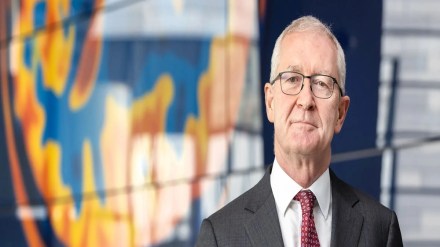On May 12, the United Kingdom released the new Immigration White Paper, which introduces stricter framework for foreigners coming to the UK via work, study, and settlement routes. It can also impact international students – as it has proposed to reduce the time of the Graduate Route visa (allowing students to work in the UK after completing their studies) to 18 months, instead of the earlier 24 months. But Hugh Brady, the president of Imperial College London (the UK’s best university, and the world’s second best, as per QS), told FE’s Vikram Chaudhary that there is no cap on student numbers, and the country still offers a welcoming environment for foreign students. Excerpts:
Will the new student visa rules impact the UK as a study destination? Will these also impact the foreign student intake at Imperial?
International students are an essential part of Imperial’s global community. They bring diverse perspectives, new ideas, and fresh approaches to tackling today’s most complex challenges. Our research-intensive education equips them with the skills, confidence, and mindset to become the next generation of researchers, entrepreneurs, and global leaders.
At Imperial, over 850 Indian students contribute to our vibrant campus and academic excellence. Many go on to make significant global impact: Shefali Bohra, for example, is an Indian graduate and co-founder of Dotplot, a startup developing a device to support early breast cancer detection. Dotplot was named New Startup of the Year by Cancer Research UK.
We are pleased that the UK remains a top destination for international students – offering a welcoming environment, no cap on student numbers, and a competitive Graduate Route visa that allows students to stay and work for 18 months after completing their studies.
Recently, Imperial opened a centre in India, not a campus. Why?
Yes, we opened a ‘hub’ in Bengaluru. Called the Imperial Global India, it aims to deepen scientific, educational, and innovation ties between India and the UK. It will also function as a bridge for collaboration across government, industry, and innovation ecosystems.
Our aim is partnering with global institutions on research and innovation – and that is ideally possible only by opening multiple centres across the world, instead of a big branch campus.
Many global universities are coming to India. Is it difficult to replicate the excellence of a parent campus in a branch campus?
I wouldn’t know – because we don’t have an experience with a branch campus. But data from the industry shows that not all branch campuses have done as well as the parent campus.
In many American universities, we have seen students protesting on the campus on geopolitical issues, including the Palestinian cause. What are your views on students discussing non-academic things on the campus?
Freedom of speech is the core principle of Imperial’s vision. Our job (of the university management team) is to provide students with comfortable spaces to discuss what are often termed as ‘difficult conversations’. This encourages students to listen to different sides of arguments – to learn how to disagree without being disagreeable.
But don’t such activities hamper studies on the campus?
I don’t think so. Universities, in a way, are public squares where dogma can be challenged, where young people learn that life is more grey than black and white, and that there is real value in diversity of ideas – and that these discussions can make the world a better place.
In the QS World University Rankings 2025, Imperial was ranked the world’s second-best university (after the Massachusetts Institute of Technology). How important are rankings for Imperial?
Yes, we are the top-ranked university in the UK and Europe. I think it’s a testament to the quality and commitment of our entire community. It is inspiring to see our students, staff, and partners come together every day to interrogate the forces that shape our world, and address the challenges facing humanity and our planet. Imperial has tremendous strength in science, engineering, medicine, and business (STEMB).
